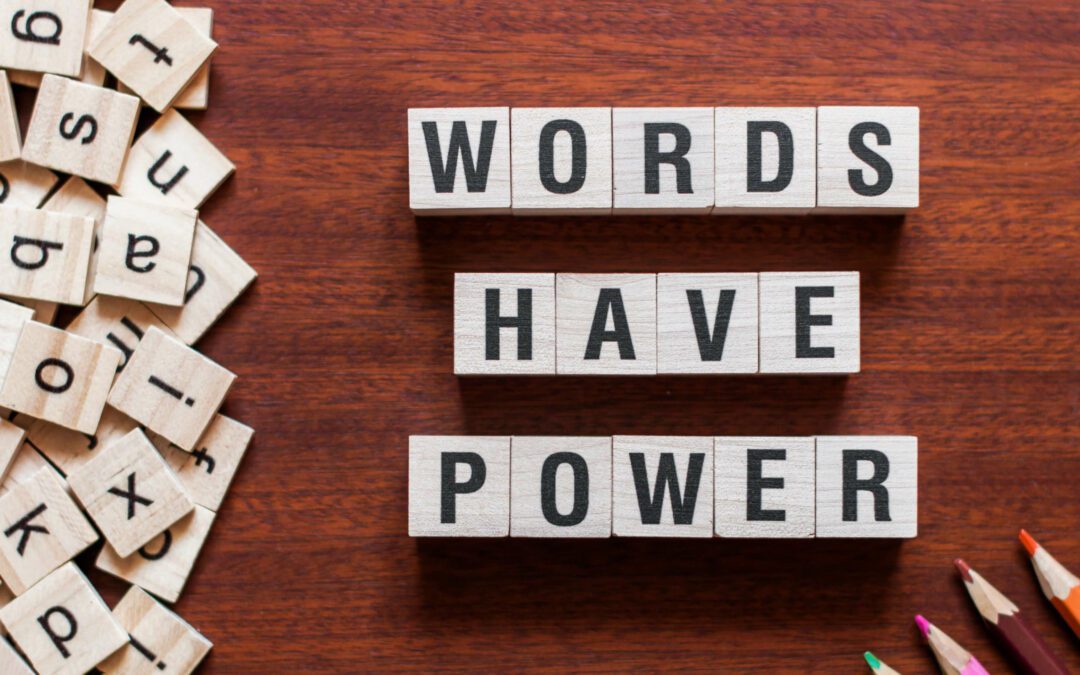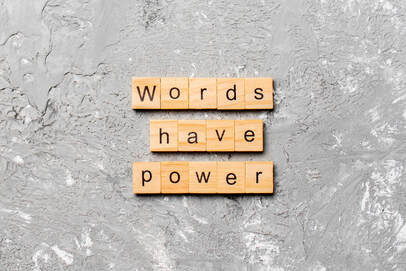Sticks and stones may break my bones, but words can literally goof up my brain.
When I’m talking with clients, particularly in some of the very first conversations, I frequently hear words of fear, struggle, and confrontation. Sometimes even warlike terms.
- “I’m tired of wrestling with my goals.”
- “I’m gearing up to do battle with my paperwork.”
- “It’s like my planner and I are in a broken relationship.”
- “This closet terrifies me.”
- “I have to conquer my cluttered desk.”
There’s some hyperbole in there, for sure, and I’m trained to listen for it. But there’s been a pattern of words that are different from just downers, and they seem more frequent. They aren’t so much self-directed criticisms like the “I’m such an idiot” kind of negative self-talk (although there’s some of that too). The words are more interactive in nature. Maybe, in part, what I’m noticing is a reflection of the time, and of course we have to have the language to describe what we experience. How many times do we discover that talking things out is cathartic?
But for fun, I searched my Evernote client note archives since the beginning of the year and counted how many times certain words or their variations came up. Here’s what I discovered:
Wrestle – 3 times
Battle – 4 times
Struggle – 6 times
Scared/Scares – 8 times
Afraid – 9 times
Fear – 25 times
Other words and phrases that showed up – drowning, freaked out, defeated, pissed off, falling, failing, muddled, vengeance, crippling, combat, screaming.
OK, maybe not so fun. There’s evidence that speaking these kinds of words directly affects the part of the brain that processes pain. In an article from the Business Relationship Management Institute, they reference a neuroscience experiment that indicates “ultimately, negative words, whether spoken, heard, or thought, not only cause situational stress, but also contribute to long-term anxiety.*”
This is not exactly fresh news, but there’s plenty of science to back it up. How fun is it to try to get things in order when you’re experiencing anxiety? The article goes on to state that “by exercising consistent positive thoughts and speech, we not only change our self-perception, but how we perceive the world around us. Ultimately, this grants us the ability the shape our reality and change the world for the better.”
I got to wondering…what if we thought of decluttering our sentences of the words that don’t support us? Just like if we make room in the junk drawer by getting rid of the useless, broken pens, we can find the things that help us out – like the AAA batteries. It’s one thing to say, “Think positive!” with a cheesy, cheery tone. But if there’s not much room to store the positive stuff where’s it going to go? What if, somewhere between thinking a thought and speaking it, we could make a space for something else? So from thinking
“This file cabinet and I are going to war.”
to
“This file cabinet and I are (OK, breathe, wait for it…)…”
to speaking
“This file cabinet and I are coming to an understanding.”
I’m all about diplomacy. While none of us can catch our negative words all of the time (myself included!), see if you can try a little sentence editing, and let go of a few words that aren’t relevant, or helpful. The ones that don’t fit right, the ones that are old and overused, the ones that hold you back. What questions could you ask yourself about those words, and what might be another way to phrase them?
*Horton, Lindsey. “The Neuroscience Behind Our Words.” Business Relationship Management Institute. August 8, 2019. https://brm.institute/neuroscience-behind-words/.




